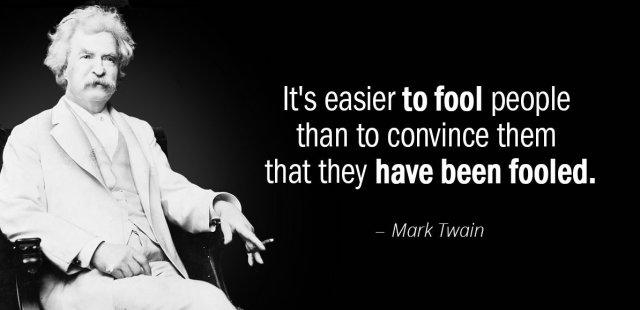Interesting article from the British Psycological Society, by Rhi Willmot.

A summary:
It’s natural to assume that we update our beliefs in line with the most recent and well-established evidence. But what really happens to our views when a celebrity endorses a product that becomes discredited by science, or when a newspaper publishes a story which is later retracted?
A recent paper from the Journal of Consumer Psychology presents a novel take on this topic, by investigating the continued influence effect.
Anne Hamby and colleagues suggest that our likelihood of continuing to believe retracted information depends on whether or not it helps us to understand the cause-and-effect structure of an event.
Crucially, the team proposes, we would rather have a complete understanding of why things happen than a perspective which is more accurate, but less complete. And they make several experiments to prove it. You can read the whole article here.

You may also like previous posts:
No cambiamos de opinión aunque nos demuestren que estamos equivocados
Cambiar creencias irracionales (las de otros, por supuesto 😉
Los sesgos cognitivos más frecuentes
Nueva conferencia: SorprendenteMente

